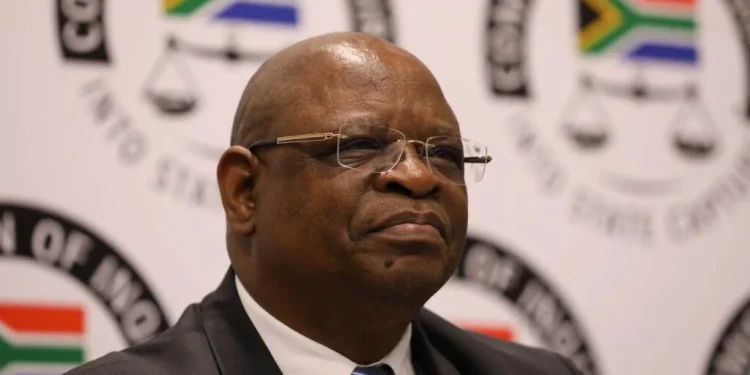An influx of public discontent has ejected, with requires the quick capture of Boss Equity Raymond Zondo or the reimbursement of the R1 billion spent on the State Catch Commission. Pundits are voicing their disappointment, marking the commission as a costly “carnival” that, regardless of its broad hearings and point by point discoveries, has not yet brought about countless high-profile arraignments. The backfire highlights the well established dissatisfaction numerous South Africans feel towards the sluggish speed of equity and responsibility in the country.
The State Catch Commission, regularly alluded to as the Zondo Commission, was laid out in 2018 to explore claims of far reaching debasement inside state organizations during the residency of previous President Jacob Zuma. Driven by then-Vice president Equity Raymond Zondo, the commission took north of four years to finish its work, gathering large number of pages of declaration and reports. Notwithstanding, while it exposed the degree of debasement and embroiled various people, many feel that the results have missed the mark concerning conveying substantial equity.
The commission’s expense, which expanded to an expected R1 billion, has been a disputed matter. Pundits contend that the monetary cost has not converted into genuine ramifications for those named in the discoveries. “Zondo should be captured right away, or he ought to return our R1 billion that he squandered on that carnival,” peruses one of the new virtual entertainment posts that catch the developing disappointment of residents. Such opinions are getting momentum, mirroring the discernment that the commission was even more a display rather than a system for real change.
Allies of the commission, in any case, contend that the work it did was critical in uncovering the full degree of defilement, in this way laying the foundation for future arraignments and fundamental changes. They underscore that the worth of the commission’s work can’t be exclusively estimated by quick captures but instead by its drawn out influence on administration and against defilement endeavors.
Guarding the use, legitimate specialists and a few political experts propose that the commission’s discoveries act as a basic device for the Public Indicting Authority (NPA) and other policing to construct strong bodies of evidence against those involved. “The issue lies not in the actual commission, but rather in the inability to act quickly on its proposals,” said a legitimate expert. They feature that it is presently dependent upon the NPA to seek after arraignments in light of the proof gave.
Be that as it may, the overall population’s understanding seems, by all accounts, to be running dainty. The sluggish speed of arraignments and the discernment that high-profile figures embroiled in state catch keep on sidestepping equity has filled broad disappointment. That’s what many contend assuming the R1 billion spent on the commission doesn’t yield significant lawful results, it will act as an unmistakable wake up call of squandered assets in a nation battling with financial difficulties and an absence of public confidence in its foundations.
Equity Zondo, presently filling in as South Africa’s Main Equity, has not straightforwardly answered the requires his capture or reimbursement of the assets. His residency in charge of the legal executive spots him in a fragile position, as he supervises a legal executive entrusted with carrying out the very suggestions his bonus made. This double job has muddled the public’s discernment, driving some to address whether the legal executive itself can keep up with unbiasedness in these high-stakes cases.
The requests for Zondo’s capture, while far-fetched to emerge, mirror a more extensive dissatisfaction with South Africa’s equity framework. They act as an obvious wake up call of the public’s assumption that payments of request should prompt activity, not simply words on paper. Until further notice, the eventual fate of the Zondo Commission’s discoveries rests in the possession of the NPA and other analytical bodies. How they decide to continue will decide if the R1 billion spent was an interest in equity or simply a costly display.






















